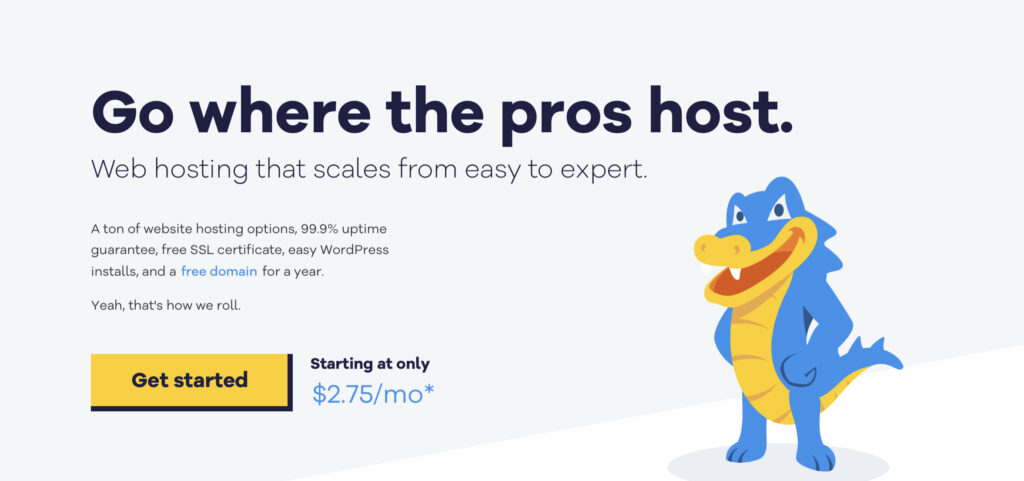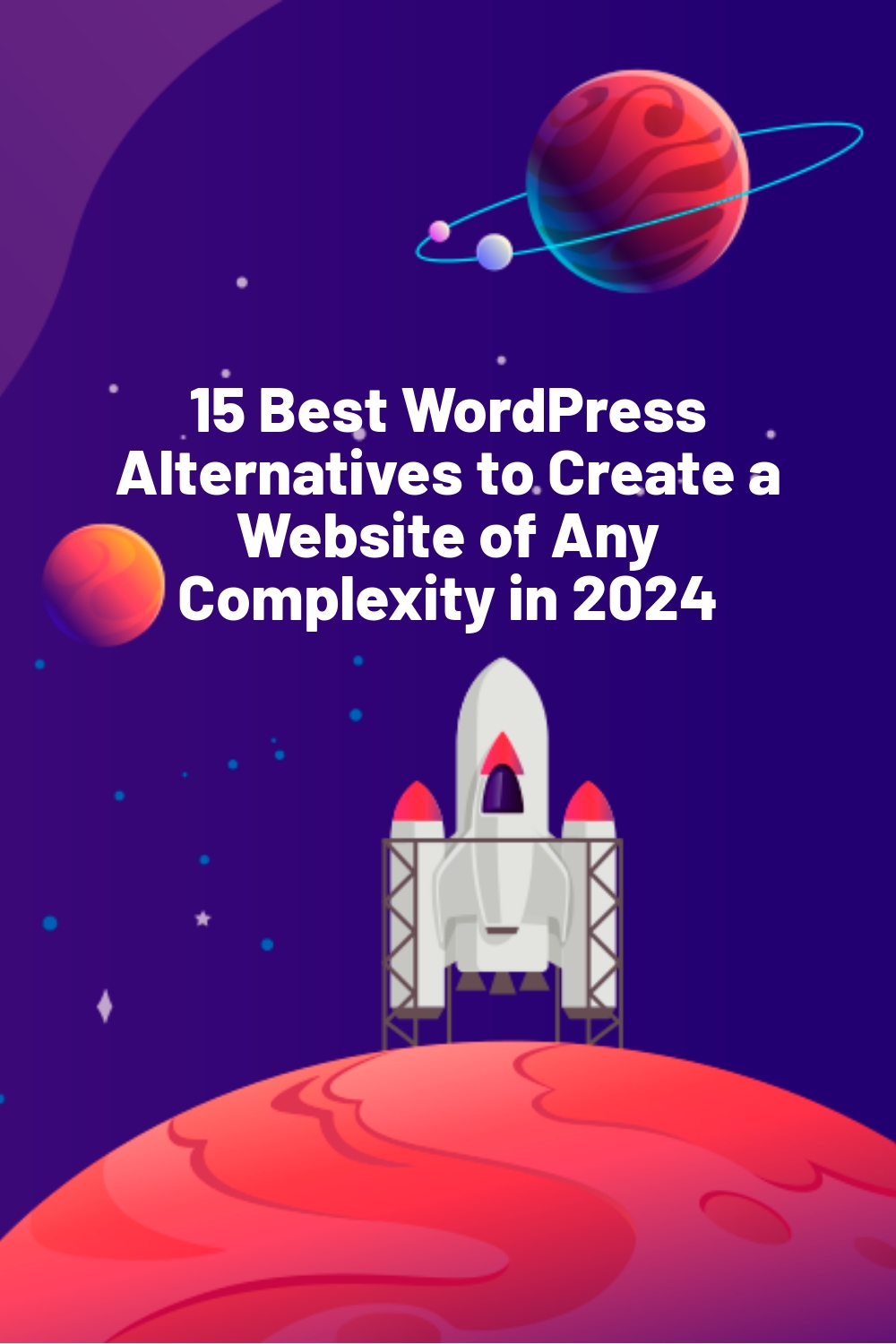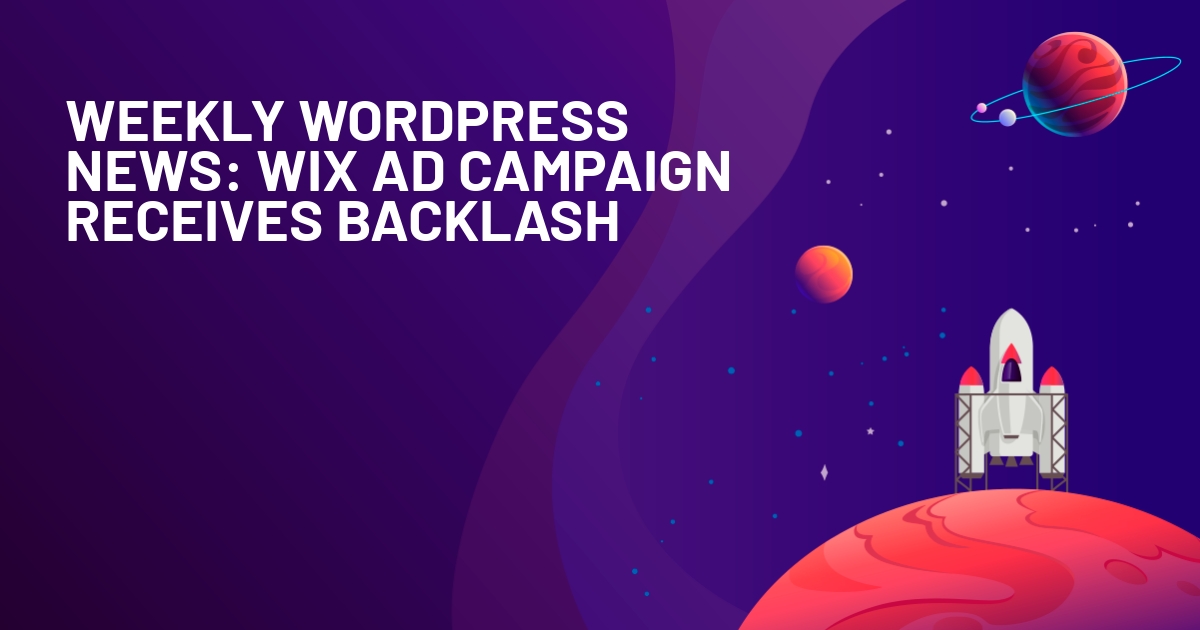WPLift is supported by its audience. When you purchase through links on our site, we may earn an affiliate commission.
15 Best WordPress Alternatives to Create a Website of Any Complexity in 2024
Are you looking for WordPress alternatives? While there are many admirers of the world’s most popular content management system, it doesn’t mean there aren’t other sites like WordPress to build your website or blog.
In this article, we’ll look at and analyze some alternatives to WordPress, giving you the chance to learn what else is out there. And hopefully, after reading this review, you’ll have a better idea of whether any of those alternatives will work better for your needs.
Wix

Wix is a ‘hosted’ website builder that allows you to design and construct your own website or online business without knowing how to code.
Wix stands apart from other popular website builders because of its high level of customization. All layouts are accessible to branding changes and customization, allowing you to create the site of your dreams. They’re scalable and adaptable so that they can handle high traffic and complicated operations, and they’re all equipped with search criteria to assist visitors in finding what they’re looking for.
Pros
- Wix’s drag-and-drop construction features make its editor very user-friendly, even for those with no prior technical knowledge.
- You have a lot of creative freedom and flexibility, which means you can simply change your design to appear exactly as you want it to.
- The customer support is outstanding.
Cons
- You can’t change your template once your site has been launched without starting over.
- You aren’t permitted to have limitless bandwidth or storage on any Wix website.
Price
- VIP Plan – $24 per month
- Entrepreneurs & Freelancers Plan – $12 per month
- For Personal Use Plan – $8 per month
- Most Basic Plan – $4 per month
Shopify

Shopify is a website that allows you to set up your own online store. It gives you a variety of themes to choose from, all of which can be modified to fit your own branding needs, and it lets you sell both physical and digital items.
Pros
- Shopify’s robust backend editor and inventory management system make it perfect for managing – and expanding – bigger shops.
- It has access to a third-party app.
- Shopify offers a vast library of applications and third-party extensions that may help you take your business to the next level.
Cons
- Not as user-friendly as other platforms.
- Transaction fees, as well as the requirement for extra applications, can drive up the cost of running your business on a monthly basis.
Price
- Shopify Lite — $9 per month
- Basic Shopify — $29 per month
- Shopify — $79 per month
- Advanced Shopify — $299 per month
- Shopify Plus — custom pricing
Weebly

Weebly is one of the most user-friendly, strong, and dependable website builders available. It allows anybody to create a blog, online business, or personal website without writing a single line of code.
Weebly provides you with a custom domain and email address, as well as dependable and free hosting, fully configurable and modern themes and templates, premium assistance by email, chat, and phone, video lessons, webcasts, and other resources.
Pros
- The best website builder for small businesses, with all of the essential features for creating a fantastic company website or even an online store.
- Weebly’s themes are all simple, elegant, and mobile-friendly.
- Weebly’s help and support area have some really helpful SEO guidelines for guidance on coding, keyword optimization, and ideas on how to improve your site’s rating.
Cons
- The platform might be glitchy at times.
- When adding photographs, you must wait for the upload to complete before moving on to another section of your site, otherwise, your effort may be lost.
Price
- Pro Plan – $12 per month billed annually
- Connect Plan – $5 per month billed annually
- Business Plan – $25 per month billed annually
Jimdo

Jimdo is an all-in-one platform for building websites and online marketplaces. Depending on your strategy, you can utilize it for several purposes.
It’s a hosted solution, which means it runs in your browser and doesn’t require any software or hosting to use. Jimdo will provide all of the necessary components of your website, including a domain, template, and hosting. All that’s left to do now is add the content.
Pros
- You have the most control over your website with a solid control panel, dashboard, and essential settings.
- Even after you’ve finished building your website, you may change the templates without losing your work. With the new template, all of the web design and content is immediately set up.
- The Jimdo site builder is accessible in a variety of languages in addition to English.
Cons
- Template selection is limited.
- Support is only available via email.
Price
- Grow Plan – $ 15 with 20 GB bandwidth and 15 GB storage
- Start Plan – $ 9 with 10 GB bandwidth and 5 GB storage
- Play Plan – FREE with 2 GB bandwidth and 500 MB storage
Squarespace

This website builder has a variety of mobile-friendly designs, and its customer care live chat service is excellent.
Bloggers, small company owners, and creatives may benefit from Squarespace’s built-in features. SEO capabilities, eCommerce functions, and easy social network integration are all accessible, as are G Suite and PayPal interfaces.
Pros
- There is a great combination of marketing and SEO for websites.
- Excellent email marketing integration.
- Sites are mobile responsive without the need for a separate mobile site.
Cons
- Squarespace isn’t designed for huge websites with complex menu structures.
- The editing of the web pages might be tough.
Price
- Personal Plan – $12 per month
- Business Plan – $18 per month
- Commerce Plan – $26/$40 per month
Joomla

Joomla is a popular open-source content management system that enables the construction of websites and designs in a way that can be used for a wide range of applications, including small company and corporate websites. It is powerful, simple to use, cost-effective, and dependable.
Pros
- Because of its open-source nature, users are free to change and share code generated by this platform.
- This platform has a number of extensions that may be used to enable e-commerce.
- Because this is an open-source platform, the community has a wealth of resources to help people that have questions.
Cons
- Some people may find it tough to implement their unique designs straight away as a result of this.
- When it comes to adding modules to your site, this platform offers a very restricted marketplace.
Price
- Personal Plan – $99
- Business Plan – $199
- Agency Plan – $399
Webnode

Webnode is a website with a multilingual function that allows clients to include several language versions in their websites. Even more intriguing is the fact that the firm provides a variety of attractive layouts.
You may also have peace of mind with the Backup and Restore capabilities, which allow you to preserve different versions of your site. It also has all of the features that a competent website builder should have. Its editor primarily highlights the most important aspects, making it rather restricted in contrast to its competitors.
Pros
- It has an easy drag-and-drop interface and a Grid System makes building your site a breeze.
- Twenty different languages are supported, as well as multilingual web pages.
- Customer service is also available in 20 languages.
Cons
- Limited eCommerce functionality.
- Outdated theme templates.
Price
- Profi Plan – $22.90 per month
- Standard Plan – $12.90 per month
- Mini Plan – $7.50 per month
- Limited Plan – $3.90 per month
Site123

Site123 is a website-building platform that makes it simple to create websites. The platform, which is suitable for both individual and business customers, enables the creation of an online presence without the need for technical expertise and experience.
The system produces beautiful, responsive, and SEO-friendly websites. Site123 is ideal for customers who do not want to employ a professional web developer to build their website or do not have much time to devote to the process. When it comes to putting up their websites, customers may select from a variety of pre-made layouts.
Pros
- It produces responsive web pages, which means it gives consumers the best possible viewing experience regardless of the device they’re using.
- The site is hosted on a Content Distribution Network, which assures the site’s security, speed, and operation.
- The plugins system also allows you to create a landing page or one-page website, which might be useful for some sort of content.
Cons
- The builder is not a drag-and-drop.
- You can’t add any code to your website.
Price
- Premium Plan – $5.80 per month
Webflow

Webflow is a cloud-based Content Management System (CMS) that allows users to create websites without writing any code like most other website builders. However, unlike other CMSs such as WordPress, Webflow’s value lies in its nearly infinite customization capabilities.
Webflow is a popular choice among web designers due to its increased level of customization. They have more expertise with websites and are enthralled by the range of options available, as opposed to newbies, who are sometimes overwhelmed by the need to make everything perfect.
Pros
- Webflow allows you to construct fully customizable websites without having to know how to code.
- You can design and modify your pages in any manner you like with the drag and drop page builder.
- You don’t need to know how to code to make animations and interactions.
Cons
- It is a bit complex to handle
- It is also a bit expensive.
Price
- Account Plan – $16 – $35 per month billed annually
- Site Plan – $12 – $36 per month billed annually
BigCommerce

BigCommerce is a for-profit, ‘hosted’ e-commerce platform that enables company owners to create an online shop and sell their wares online.
BigCommerce is ‘hosted,’ which means it operates on its own servers and does not require you to purchase web hosting or install anything on your computer in order to use it. You can construct and maintain your store from anywhere as long as you have access to a web browser and the internet.
Pros
- It’s easy to get started.
- The main advantage of this platform is that it allows anybody to create and operate their own online store without having to rely on a variety of services.
- Multiple levels of protection safeguard BigCommerce stores.
Cons
- No Lite version.
- Instead of going “live” immediately away, it provides a preview mode while making updates.
Price
- Standard Plan – $29.95 per month
- Plus Plan – $79.95 per month
- Pro Plan – $299.95 per month
HubSpot CMS Hub

HubSpot CMS Hub creates website pages, landing pages, and blog entries using a combination of themes, templates, and modules.
Themes are in charge of your website’s overall appearance and feel. The theme options allow you to change your website’s colors, fonts, headers, and footers.
Pros
- Making changes in HubSpot CMS Hub is as simple as clicking and dragging sections, columns, and rows to where you want them on the page.
- HubSpot also has a marketplace where you may look for more templates.
- HubSpot CMS Hub enables you to make minor modifications to your theme without having to hire a developer.
Cons
- Limited flexibility on design.
- Some of the built-in features are a bit basic.
- Expensive.
Price
- Professional Plan – $270 per month billed annually
- Enterprise Plan – $900 per month billed annually
Drupal

Drupal is one of the greatest CMS software packages available, and it is the most widely used content management system in the world. It is based on fundamentals that function really well. While many of its features aren’t showy, the ones that are, are reliable and provide some unexpected functionality that you might not have expected.
Security is a top priority for Drupal CMS. Its websites are closely regulated, and the most recent upgrades are installed on a regular basis. Coders are known for their lightning-quick reaction speeds, which they use to address any changes as they arise.
Pros
- It’s ideal for building huge, complicated websites.
- With the help of a committed community.
- You may establish roles with individual permissions using Drupal’s built-in access control mechanism.
Cons
- To learn fundamental Drupal functionalities, be prepared to read a lot of material.
- Because most Drupal website themes are custom-coded, you may need to collaborate with a developer to build one that is suitable for your needs.
Price
- FREE
PrestaShop

PrestaShop is a freemium, fully hosted e-commerce platform that allows merchants to create a fully functional online store for their company quickly. Users may easily have their online store up and running without the income percentage or licensing cost that other similar products demand.
PrestaShop makes e-commerce more accessible to more people worldwide by allowing sellers from all over the world to create localized and customizable e-commerce stores quickly.
Pros
- Highly customizable.
- PrestaShop is designed with non-tech users in mind, making it simple to set up an online store.
- You won’t have to pay for customer service if you ask your questions on the forum.
Cons
- Add-ons are costly.
- It is really tough to comprehend.
Price
- FREE
Ghost

Ghost is a content management system that allows you to produce material in its attractive editor and design your blog to make it more reader-friendly. You may acquire your own unique domain from Ghost, as well as hosting and an editor. The themes are so well-designed that they give off a minimalist vibe.
Pros
- The Dashboard has a much more basic and clean appearance.
- Ghost’s Post editor is also more sophisticated. You may examine the live preview side-by-side while editing and creating the text. It’s easy to use, has all of the required tools, and is clutter-free.
- Ghost is a very user-friendly program. This implies that even a novice may quickly design a professional-looking blog.
Cons
- Designed only especially for blogs and publishing sites.
Price
- Introductory offer – $2.75 per month
Gator by HostGator

HostGator’s Gator is a fully hosted website builder. They are one of the most well-known website hosting businesses in the world and are experts in the field.
Gator includes pre-made website templates that you can personalize using a drag-and-drop website builder. Without any learning curve, even complete beginners may rapidly become acquainted with the app.
Pros
- All plans come with unlimited storage.
- They don’t impose any restrictions on the amount of traffic your website may receive.
- One of the hosting companies that supports a wide range of languages.
Cons
- Their backend is crammed with upsell options that aren’t required.
- You only have access to one backup unless you pay for an add-on.
Price
- Starts at $2.75 per month
What’s your favorite WordPress Alternative?
If you’re trying to find other websites like WordPress, we believe that Wix is the best option that is most similar to WordPress. Website builders like Wix provide a slew of benefits. Wix is a website-building platform that is both free and user-friendly. Users have the freedom to do whatever they want, thanks to its accessible technology and strong built-in capabilities.
But it’s crucial to pick the correct one! Switching providers once your website is up and running is tough since each platform has its own system, which is typically incompatible with other website builders.
Is there anything better than WordPress?
Rather, ask yourself, “Which platform is best for the unique demands of the website I’m building?”
WordPress is likely to be superior for the great majority of websites, and it should be your first option in most cases. However, you can try these alternatives and to see if they are better suited to your needs.
Honestly, despite the numerous WordPress alternatives available, WordPress remains the most popular content management system because it is the simplest and most versatile approach to construct a website for most people.
That isn’t to say that one of these options isn’t superior in some situations. But as a stand-alone option? WordPress is the winner.
Wrapping Up!
Although WordPress is a popular tool among web designers, it is not for everyone. Bloggers and freelancers may demand a different solution than experienced users. You might want to look at different WordPress alternatives, depending on your requirements.
We hope that this article helps you to find some WordPress alternatives that suit your needs.
Let us know how you get on!








With sites like Medium, Tumblr and of course WordPress that can do the same thing if not more than Ghost, I have a hard time finding a reason why anyone would pay for Ghost. What does Ghost offer that makes it worth even the smallest plan of $10/month? WordPress – and the others I mentioned – are free no matter your hosting set up or your page views. I don’t consider Ghost to be much of a competitor in that sense.
With that said, I do enjoy using Medium from time to time. Some of the posts on there are great reads and I’ve added a couple “longer form” posts of my own that don’t necessarily fit on any of the other blogs I write for.
Not much of a fan of tumblr as a blogging platform, can’t get past seeing it as meme central. Haven’t tried the others you mentioned.
Yes I agree, of course you are free to download ghost and install it on your own hosting but the process seems a little complicated, especially for beginners.
酒杯里竟能蹦出友谊来?这篇文章就像酒杯里面的精华,清醇令人回味
I think things must be separated first.
Every platform has its own thing.
It depends on what you plan to do for you website. You can`t do an e-commerce site on Medium or Tumbler (like you can do on WordPress or a custom CMS ).
If you just wanna blog ( and the purpose is to write…) it will not make a big difference on what platform, as long as you post your articles online.
Ghost seams cute… i`ll stop there.
Don`t wanna pay Craft 200 dolars, if I can do the same for free, nothing pecial for me here.
Expression Engine… well, you got my attention. I`ll take it out for a spin.
@OLI, Thanks for this article ! :)
I read a lot of interesting posts here. Probably you spend a
lot of time writing, i know how to save you a lot of time, there is
an online tool that creates high quality, google friendly
posts in seconds, just type in google – laranitas free
content source
Hi, you definitely missed Dotclear https://dotclear.org/
created in 2003 and running without a itch since then. :)
Worth a try.
Every platform is different and serves different set of users. however WordPress is the only CMS which fits one and all. simple to complex website can be built using WordPress.
Amazing post. Thanks for sharing.
WordPress and these other alternatives are good choices as website building platforms that allows an average person to create a nice website free of charge. But…
Many, if not most, people who want a website really want a web BUSINESS –they want to make money with their site. Yet while putting up a site is easy (as the “cheap-quick-easy” marketing hype promises), knowing how to build an online business is another story.
Neither WordPress nor any of these other alternatives “as is” will build an online business which you get if you know how to do SEO and build traffic. They ALL are missing a do-able start-to-finish BUSINESS process.
The reality is that most sites never get more than a handful of visitors. And without traffic, income is hard to come by. In other words, No traffic = No profits.
Surely, you can slog through the mountains of business building advice and tools that are out there. But for most WordPress users and those using these alternatives it all ends up being too much.
So, despite the dazzling display of WordPress/WordPress alternatives features (even SEO gadgets), the reality for most (non-tech) people who want to create a web business with WordPress or its alternatives is that they need to adhere to an easy-to-follow, all-in-one, proven, ethical webbusiness-building system (not a get rich quick scheme), tailored to say the WordPress platform, to get (1) a significant amount of traffic and get (2) targeted traffic (example of such a system: WealthPrinciples dot net or IncredibleFreedom dot com).
Otherwise… you’ll end up having (and building) only a WordPress/Name of WordPress Alternative webSITE (or BLOG) but not a webBUSINESS.